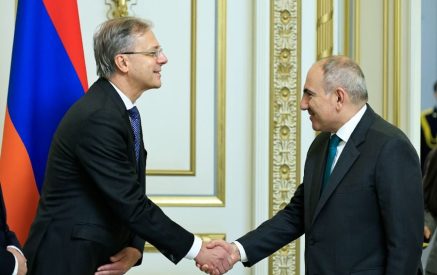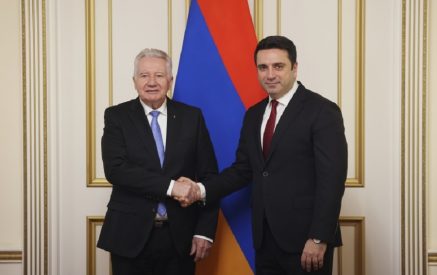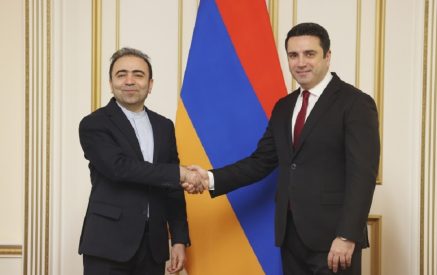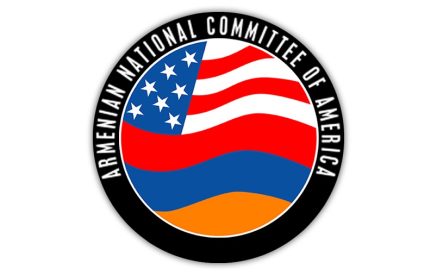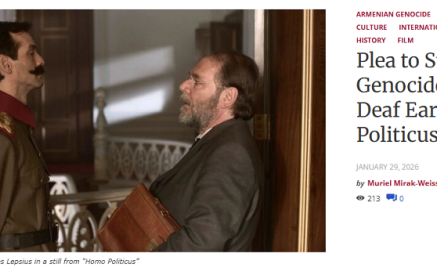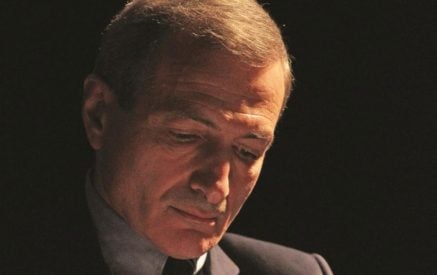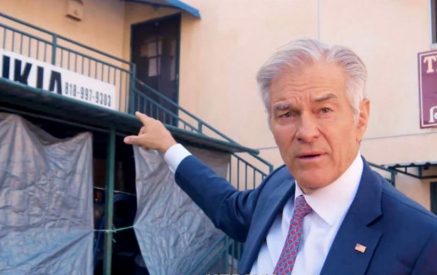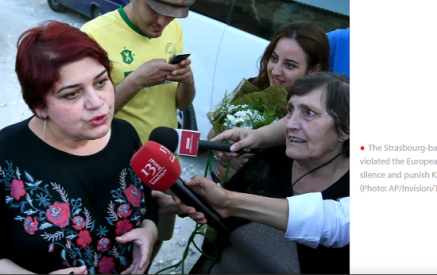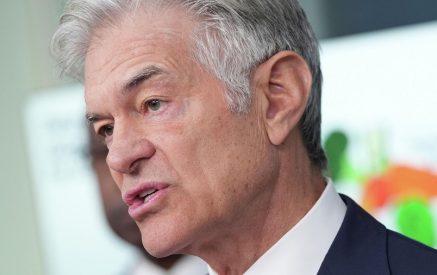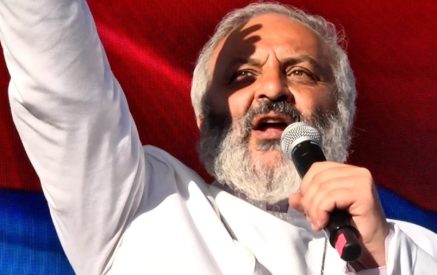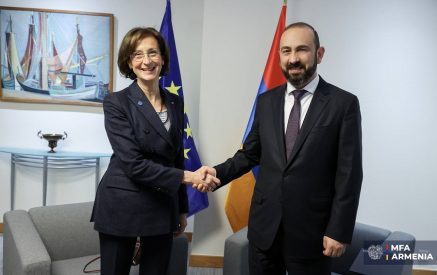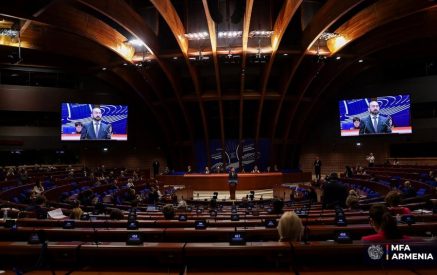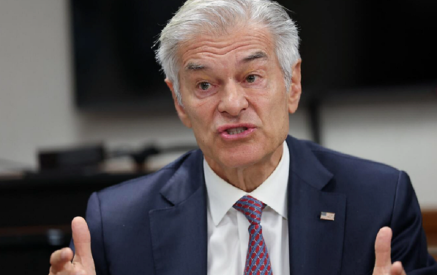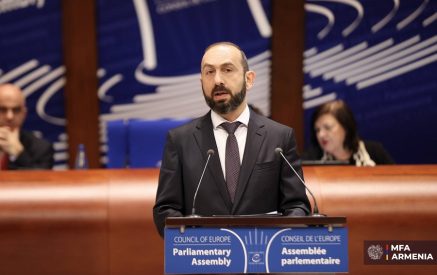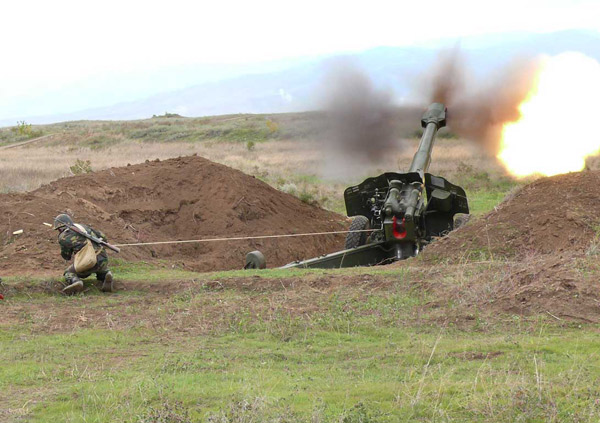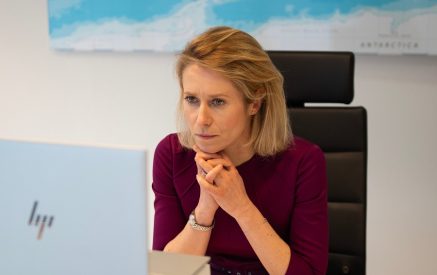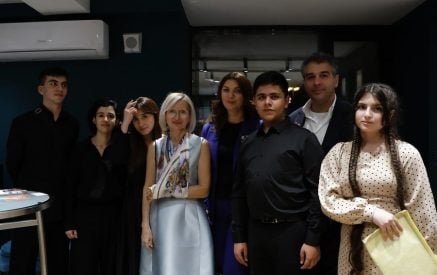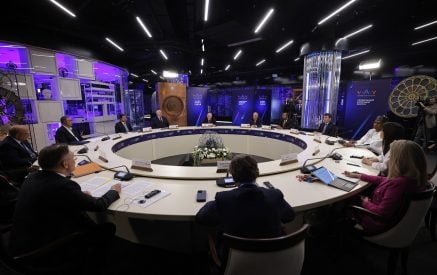The regional military and political events of the recent week raise a number of questions, the most important of which is related to Russia’s intentions.
While some try to claim that the recent tensions could have been possible without Russia’s permission and that Baku had attacked Nagorno Karabagh upon its own initiative, the events of the last few years bear witness of a different trend.
In particular, the Russian-Azerbaijani military trade, the fact that till today Armenia has not received the loan amount of 200 million USD (the loan agreement was signed in the summer of 2015) intended for purchasing arms, Azerbaijan’s protest against the loan and the apologizing response of Russian Foreign Ministry’s official representative Maria Zakharova prompt Aliev that he will not run the risk of being scolded by the Russian big brother in case of provoking war. The diplomatic statements of the recent days also testify that Kremlin did not mind such developments. The following events show that Moscow has changed its approach not only in regard with arms sales, but diplomacy as well. One of the indicators was the act of moving the meeting of the EAEU prime ministers from Yerevan to Moscow by using war as an excuse. In reality, this was a message to Baku implying that the EAEU does not stand by Armenia in this difficult situation. Another indicator was Medvedev’s decision to cut short his visit to Yerevan in order to be able to visit Baku as well. Moreover, the Russian prime minister also visited the monument dedicated to the so-called martyrs in Baku and laid a wreath in memory of Azerbaijani soldiers who died in the battles against the Armenian forces.
Naturally, Russia’s main aim is the deployment of Russian peacekeeping troops in Nagorno Karabagh. There is no doubt that Nagorno Karabagh conflict is the main lever for Russia to keep its influence in the South Caucasus. Hence, the resolution of the conflict (in favor of any of the sides) is not in the interests of Russia. Whereas the deployment of Russian peacekeepers would solve the issue of submitting Armenia to Russia’s will whenever Armenia would dare not to obey Kremlin. The circumstances mentioned below serve as testimony of such intentions of Russia:
Read also
- The agreement on ceasing the fire was reached by Chiefs of General Staff of the Armed Forces of Armenia and Azerbaijan in Moscow on April 5. This means that the agreement is not a diplomatic but a military one because the issue was discussed by Chiefs of Staff of the Armed Forces, not Foreign Ministers. Thus, a question arises… What did the sides discuss during that meeting in Moscow and why was it a secret meeting?
- On April 7, Armenian President Serj Sargsyan gave an interview to the German Deutsche Welle, in which he stated that Armenia had never objected to the deployment of Russian peacekeepers in Nagorno Karabagh. Taking into account the fact that Nagorno Karabagh has strongly opposed the deployment of peacekeepers in in its territory ever since 1994, we get the impression that Serj Sargsyan is paving the way for the news to come.
- The Russian-Armenian relations have sharply deteriorated during the recent days. It was expressed in multiple ways: starting from the change of rhetoric of official Yerevan when referring to its “strategic ally” and ending with the fact that Dmitri Medvedev was accompanied to the Armenian Genocide Memorial only by Yerevan Mayor Taron Margaryan. This change may both be related to the fact of arms sales to Azerbaijan and some diplomatic coercion.
- There is also an activation of discussion about the mystical Kazan Document which was suggested by Russia during the meeting of Armenian and Azerbaijani presidents in 2011. Armenia had agreed to accept the document and Azerbaijan had refused. At that time there was speculation that according to that document Armenia had agreed to return part of the regions outside the territory of former Nagorno Karabagh Autonomous Oblast (some speculated about 5 of them, others – about all the 7), and Nagorno Karabagh had to receive a special status. In the first place, it is doubtful whether the document is beneficial for the Armenian side. Nevertheless, an even more doubtful statement was recently made by Sergey Lavrov in Baku. Namely, he had stated that the Russian side has suggestions regarding the conflict settlement and the sides are close to accepting those suggestions. In response to this statement, Spokesman of the Armenian Foreign Ministry Tigran Balayan had mentioned that the Kazan document submitted in 2011 is on the negotiating table.
It is unclear what document the sides are close to adopting (the Kazan document or another one). Nevertheless, it is more than clear that if Kremlin forces a suggestion on Armenia according to which part of the territories will be passed to Azerbaijan and the rest will receive a special status under peacekeepers’ control, we will have clear diplomatic evidence that Baku’s last attack was carried out with Russia’s permission or even provocation.
- There are already political forces in Armenia which are in favor of deployment of peacekeeping troops in Nagorno Karabagh. Particularly, such an opinion has been expressed by head of ANC faction of the RA National Assembly Levon Zurabyan. Head of the ruling party faction has also announced that they would not mind the deployment of peacekeepers.
- On April 11, we learnt that the “National Guard”, which was created according to Russian President Vladimir Putin’s decree, will receive authorization of carrying out foreign peacekeeping mission. And though that structure is based on the Russian police forces, it is going to operate beyond the Russian borders and have a “peacekeeping mission”. This means that in case Russian peacekeeping troops are deployed in Nagorno Karabagh, these are going to be the same forces that disperse protests in Russia.
Anna Pambukhchyan,
“Union of Informed Citizens”












